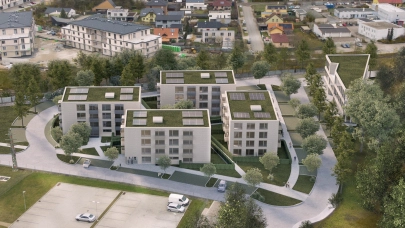
Rental activity in the Czech and European retail markets has significantly increased year-over-year, with a rise in the number of transactions and the volume of leased space across sectors and countries. A survey done by Cushman & Wakefield has analysed over 2,000 retail rental transactions in 13 European countries, including the Czech Republic.
In 2023 the most active sectors were fashion and F&B (food and beverages) in both the Czech Republic and Europe, with the health and beauty segment also growing rapidly. The majority of last year’s rental transactions were carried out by retailers targeting mass-market consumers, with activity also growing among premium and luxury brands.
Cushman & Wakefield completed 143 rental transactions on the Czech retail market last year. 32 were closed by fashion brands, another 30 occurred in the F&B segment, and 16 transactions took place in the health and beauty goods sector.
Fashion brands continue to be major players in the retail sector, leasing nearly 40% of the total space in Europe and conducting 30% of transactions last year. In the Czech Republic, they accounted for 44% of the space and 22% of the transactions. Particularly active were brands from the Italian group Calzedonia (Calzedonia, Intimissimi, Tezenis, Falconeri, Signorvino) and the Polish LPP (Reserved, Cropp, House, Mohito, Sinsay).
The food and beverage (F&B) segment consistently holds the second position. In Europe, it leased 8% of the total space (14% in the Czech Republic) and accounted for 16% of transactions (20% in the Czech Republic). Notable players include Burger King and Starbucks, with the American chain Popeye’s also being active, opening its first two branches in the Czech Republic last year.
The health and beauty products segment was the fastest-growing segment last year. The volume of space leased doubled in Europe and increased by 143% in the Czech Republic, with the number of transactions increasing by 57% in Europe and 33% in the Czech Republic. Among the very active brands were Rituals, Rossman, and Douglas.
“The increase in retail market activity is driven by inflation easing, consumer activity recovery, and improved tourism volume. This trend has also been reflected in the discount retail sector and retail parks,” explained Jan Kotrbáček, Head of Retail Agency, Central and Eastern Europe at Cushman & Wakefield.
Nearly 70% of European transactions, both in terms of quantity and leased space, were carried out by brands targeting mass-market consumers. In the Czech Republic, this figure was 75%. Only 10% of transactions (4% in the Czech Republic) occurred in the premium segment, while the luxury or discount sectors accounted for just a few per cent.
Over 80% of rental transactions in Europe last year were related to smaller retail spaces up to 600 sqm. These smaller spaces contributed to more than a third of the total leased area. Larger spaces above 2,000 sqm experienced a 30% decline, attributed to the post-pandemic slowdown in the hobby markets and household equipment segment.
Consumer confidence improved last year, and Cushman & Wakefield expects this trend to continue throughout 2024. However, the pace of improvement is expected to remain restrained as consumers feel the impact of persisting cost of living pressures, geopolitical tensions, and wider economic concerns.



